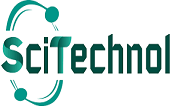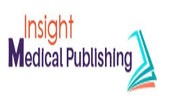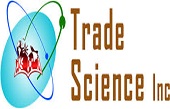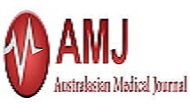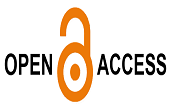Theme: Innovative Approaches To Support: Dementia & Alzheimer Rehabilitation
Euro Dementia 2019
- About Conference
- Important Dates
- Sessions/Tracks
- Target Audience & Benefits
- Related societies
- Visa Application
Euro Dementia 2019 organizing committee are esteemed to invite in upcoming "12th World Congress on Dementia and Alzheimer Rehabilitation’’ scheduled during April 11-12, 2019 in Stockholm, Sweden. With honour we welcome you to join the congress which is mainly based on the theme ‘’Different innovative approaches to treat mental disorder diseases specially Dementia & Alzheimer’s disease and their rehabilitation’’.
European conferences anticipates more than 500 participants around the globe to experience thought provoking keynote lectures, oral & poster presentations. This year conference will offer ample opportunities for all stakeholders working on Dementia, Alzheimer’s and neurologic disorder to expose their research work.
Dementia 2019 is organizing an outstanding scientific exhibition/program and anticipates the world's leading neurologists, health professionals involved in the profession and practice of neuroscience. The neurological disorder event will also reflect interest of specialists in the clinical research on Dementia rehabilitation. This dementia congress is for people to take part and gain a better understanding of such diseases, to access treatment as well as information and advice. This is an effort to make possible interactions among world leading scientists, research scholars, professionals, young researchers, principal investigators, experts and researchers working on brain from both academia and health care industry, business delegates, scientists and students from different parts of the world to exchange their knowledge and conduct dementia symposia, show experiments with new innovative techniques that disseminate information about clinical tradition, best practices, skills and knowledge in the field of neuroscience.This event will provide an international forum for the dissemination of original research results, new ideas and practical development experiences all over the globe.
In Dementia and Alzheimer’s rehabilitation 2019 conference, international symposiums, B2B meetings, international workshops will also be organized to discuss the specific topics in the field of psychiatric disorder and mental health.
Within this splendid setting, we plan to deliver a conference that will exceed your expectations. Our event aims to makesociety dementia feel safe and to create a familiar environment for them.
During this year’s conference, we hope that you will seize the opportunity to rekindle on-going connections and spark new ones with your colleagues from around the globe.
Submit Abstract: URL
Abstract Submission:
- 1st Deadline: December 29, 2018
- 2nd Deadline: February 10, 2019
- 3rd Deadline: March 20, 2019
- Final Call: April 11-12, 2019
Register now: URL
Registration:
- 1st Early Bird: January 24, 2019
- 2nd Early Bird: February 20, 2019
- 3rd Early Bird: March 30, 2019
- Final Call: April 11-12, 2019
Dementia Rehabilitation describes a set of symptoms include memory loss and difficulties with thinking or reasoning that reduce a person ability to perform everyday activities. Dementia is mainly caused when the brain is damaged by diseases, such as Alzheimer’s disease or a series of strokes. This disease mainly affects people over the age of 65 and the likelihood of developing dementia increases significantly with age. However, dementia can affect younger people too.
Conference scientific Tracks:
Track 1: Dementia
Dementia is not a specific disease. It's an overall term that describes a wide range of symptoms associated with a decline in memory or other thinking skills severe enough to reduce a person's ability to perform everyday activities. Alzheimer's disease. Vascular dementia, which occurs after a stroke, is the second most common dementia type.
2:Mixed dementia.
3:Frontotemporal dementia.
4:Normal pressure hydrocephalus
5:Signs and symptoms of dementia
Track 2: Alzheimer’s Disease
Alzheimer's is the most common form of dementia, a general term for memory loss and other cognitive abilities serious enough to interfere with daily life. Alzheimer's disease accounts for 60 to 80 percent of dementia cases. Alzheimer's is the most common form of dementia, a general term for memory loss and other cognitive abilities serious enough to interfere with daily life. Alzheimer's disease accounts for 60 to 80 percent of dementia cases. Alzheimer's is not a normal part of aging.
1:Risk Factors of alzheimers
2:Diagnosis of alzheimers
3:Treatments of alzheimers
4:Clinical Studies of alzheimers
5:Alzheimer’s disease Pathophysiology and Disease Mechanisms
Track 3: Dementia and Ageing
Aging: Not being able to remember details of a conversation or event that took place a year ago, Not being able to remember the name of an acquaintance, Forgetting things and events occasionally, Occasionally have difficulty finding words, You are worried about your memory but your relatives are not..
Dementia: Not being able to recall details of recent events or conversations, Not recognizing or knowing the names of family members, Forgetting things or events more frequently, Frequent pauses and substitutions when finding words, Your relatives are worried about your memory, but you are not aware of any problems
1:Neuro-anatomical changes in ageing
2:Risk factors of cognitive decline
3:Granulovacuolar degeneration
4:Changes in cerebral cortical microvasculature
5:Advances of research in ageing and dementia
Track 4: Vascular Dementia
Vascular dementia occurs when vessels that supply blood to the brain become blocked or narrowed. Strokes take place when the supply of blood carrying oxygen to the brain is suddenly cut off. However, not all people with stroke will develop vascular dementia.
1:Vascular dementia prognosis
2:Young onset dementia
3:Multi-infarct dementia
4:Mixed dementia
5:Parkinson dementia
6:Advences in vascular dementia therapy
Track 5: Geriatrics Dementia and Cognitive Disorders
Geriatrics or geriatric medication may be a specialty that focuses on health care of older people. It aims to push health by preventing and treating diseases and disabilities in older adults. there's no set age at that patients are also underneath the care of a specialist or geriatric .
1:Delirium
2:Mild and Major Neurocognitive Disorder
Track 6: Animal Models in Dementia
The animal models of dementia and Alzheimer's disease for pre-clinical testing and clinical translation. Dementia is a clinical syndrome with abnormal degree of memory loss and impaired ability to recall events from the past often characterized by Alzheimer's disease.
1:Neurobehavioral Toxicology Testing
2:pre-clinical testing and clinical translation
3:Protein-protein interactions
4:Genetics of translational models
5:Animal models of human cognitive aging
Track 7: Amyloid Protein in Alzheimer’s and Dementia
Alzheimer's disease (AD), the leading cause of dementia worldwide, is characterized by the accumulation of the β-amyloid peptide (Aβ) within the brain along with hyperphosphorylated and cleaved forms of the microtubule-associated protein tau.
1:Amyloid Imaging
2:FDG-PET
3:Amyloid Immunotherapy
Track 8: Dementia Care Management
The developing number of vascular dementia patients prompts both approach, monetary and wellbeing association imperatives. Numerous social insurance frameworks have created case administration programs with a specific end goal to advance dementia patients and guardians care and administrations conveyance.
1:Advances in dementia care management
2:Dementia care management program
3:Undernutrition and obesity in dementia
4:Advance care planning
Track 9: Dementia Nursing
People with vascular dementia have different mental element shortfalls that incorporate every memory hindrance, that influences the adaptability to discover new data or review data already learned, and one or extra of the ensuing side effects apraxia, agnosia, or official brokenness to such an extent that the mental element shortages adversely affect social or action working with a major decrease in past abilities.
1:Dementia nursing care plan
2:Music therapy in dementia
4:Clinical features of dementia
5: Dementia Therapeutic intervention
Track 10: Recent Advancement in Treating Dementia
Early discovery and exact analysis are critical, as vascular dementia is at any rate halfway preventable. Ischemic changes in the cerebrum are irreversible, however the patient with vascular dementia can exhibit times of solidness or even gentle change. Since stroke is a basic piece of vascular dementia, the objective is to forestall new strokes. This is endeavored through decrease of stroke chance components, for example, hypertension, high blood lipid levels, atrial fibrillation, or diabetes mellitus.
1:Primary mental health care and nursing
2:Psychopharmacological treatment
3:Advanced drugs for dementia
4:Cognitive behavioral therapy
5:Family therapy in nursing
Target Audience:
- Neurologists
- Psychiatrist
- Neurosurgeons
- Psychologist
- Neuroscientists
- Brain Specialists
- Researchers
- Neuro Physiotherapists
- Lecturers and Students from Academia in the study of dementia and Alzheimer disease
- Lecturers and Understudies from the scholarly world in the investigation of Dementia
- Health mind experts
- Mental disorder specialists
- Physicians Assistants
- Special Educators
- Health care professionals
- Doctors, Nurses
- Physician Assistants
- Occupational Therapists
- Parents, Family Members, Caregivers, Advocates
- General Educators
- Special Educators
- Education consultants
- Employment services
- Transition to work and post school providers
- Paraprofessionals
- Policy makers (government and non-government)
- Pupil Service Directors
- Superintendents
- Professors
- Industrial Experts
- Nutritional Scientists
Benefits:
- Access to all Sessions
- CPD Certification
- Abstracts will be published with unique DOI number
- Certificate Accreditation by the International Organizing Committee
- Handbook & Conference Kit
- Abstracts will be published in the conference souvenir and respective international journals
- Ask the Expert Forums (One to One Pre-Scheduled meeting on interest and availability)
- Access to the attendees email list (post conference)
- 25% abatement on the registration fees for the next annual conference
Related Societies
Dementia Society of America, Alzheimer's Disease International (ADI)
Acoustic Neuroma Association, Aicardi Syndrome Foundation and Alliance for Aging Research
Alzheimer's Association, Alzheimer’s and Related Disorders Society of India
ALS Association and ALS Therapy Development Institute
Alternating Hemiplegia of Childhood Foundation and Alzheimer’s Drug Discovery
Foundation, Alzheimer's Association and Alzheimer's Foundation of America
For conference attendance and participation only Business Visa should be applied. Contact your nearest travel agent/visa information center/ Sweden Embassy for the correct application form.
All visas for visiting / Sweden shall be processed by respective authorities only upon submission of proper documents through proper channel.
In case of non-furnishing of documents, non-adherence to guidelines visas shall be cancelled by respective authorities.
The minimum supportive documents that might be required while applying for / Sweden visa include:
Letter of invitation,
Abstract acceptance letter (if speaker),
Registration payment receipt,
Accommodation confirmation letter issued under conference letter head.
For letter of invitation and accommodation confirmation, payment of registration fees and accommodation charges is a pre-requisite.
Mandate documents required from conference secretariat should be obtained only through Edward Parker
For more details please contact:
Edward Parker
Program Manager
E: dementia@europemeet.com
E: dementia2019meetings@gmail.com
Conference Highlights
- Dementia
- Alzheimer’s Disease
- Dementia and Aging
- Vascular Dementia
- Geriatrics Dementia and Cognitive Disorders
- Animal Models in Dementia
- Amyloid Protein Role
- Amyloid Imaging in Dementia
- Neurodegenerative Diseases
- Dementia Parkinson’s Disease
- Dementia Care Management
- Dementia Nursing
- Neuropharmacology
- Recent Advancement
- Treating Dementia
- Dementia Rehabilitation and Therapy
To share your views and research, please click here to register for the Conference.
To Collaborate Scientific Professionals around the World
| Conference Date | April 11-12, 2019 | ||
| Sponsors & Exhibitors |
|
||
| Speaker Opportunity Closed | Day 1 | ||
| Poster Opportunity Closed | Click Here to View | ||
Useful Links
Special Issues
All accepted abstracts will be published in respective Our International Journals.
- Journal of Alzheimers Disease & Parkinsonism
- Journal of Neurological Disorders
- Brain Disorders & Therapy
Abstracts will be provided with Digital Object Identifier by
















